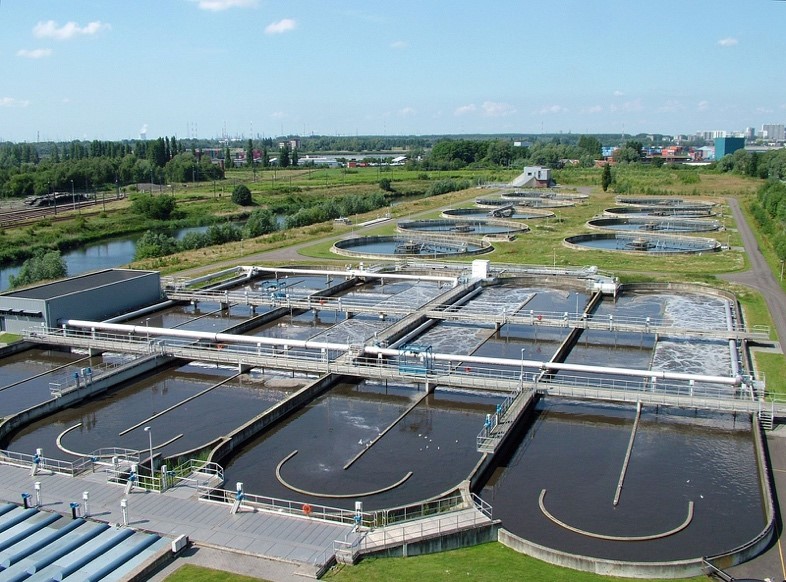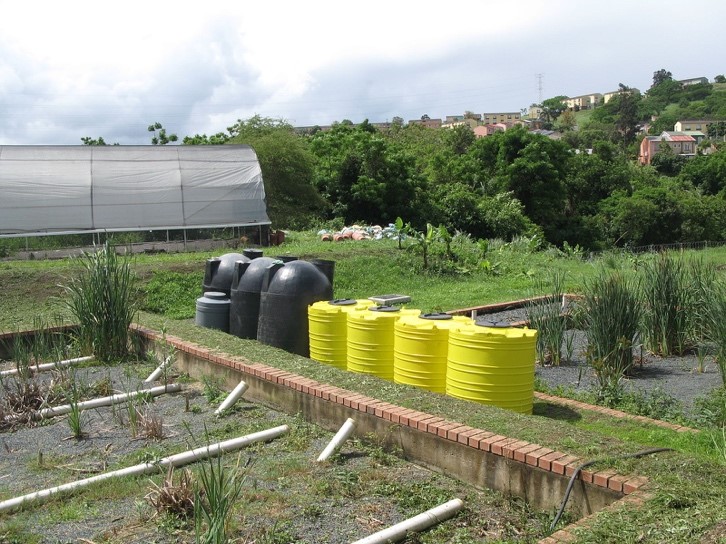Wastewater Treatment in Developing Nations: What are the Options?

By Anna Fausnacht, PhD Student in Human Nutrition, Foods, and Exercise, Virginia Tech
This week’s discussion in the interdisciplinary Water for Health Seminar, GRAD 5414, focused on wastewater treatment in developing nations; Dr. Jason He led the conversation. The class discussion was preceded by a short overview of the different ways and reasons to treat water supplies. As would be expected, drinking water is handled slightly different than wastewater treatment in that it must be safe for human consumption, usually accomplished through the use of chemicals. Wastewater on the other hand is usually a mix of domestic and industrial wastewater and stormwater. Domestic wastewater is most harmful due to higher pathogenic loads, while industrial wastewater often times contains higher levels of metals, metalloids and volatile or semi-volatile compounds (Qadir, 2010). Wastewater is known for it nasty color and foul smell and taste. Therefore, wastewater usually undergoes a more intensive biological treatment with the primary goal to remove organics (which deteriorate water quality) and nutrients (that feed the organics).
Our discussion took an interesting turn when we began to discuss the use of polluted wastewater in agricultural irrigation. As developing countries begin to grow larger and larger urban populations, the need for clean water increases. Therefore, fresh water is diverted towards these growing urban populations and in turn a large amount of wastewater is generated. This wastewater is usually dumped into local rivers and bodies of water to be used by local farmers who are either too poor or unwilling to pay for treated wastewater, if they even have the opportunity to buy it. With this cycle comes the inevitable pollution of agricultural products, the most dangerous being green leafy vegetables. “Human health risks from wastewater irrigation include firstly farmers’ and consumers’ exposure to pathogens including helminth infections, and secondly, organic and inorganic trace elements” (Qadir, 2010). However, this remains a largely untouched issue in global public health.

So, if we know that using polluted wastewater to irrigate agricultural products can cause adverse health effects, then why are we still doing it? According to Dr. He it all comes down to MONEY!
Why money? Well the current technologies used to treat wastewater in developed nations are extremely expensive and require a lot of energy. Even in the countries that have wastewater treatment facilities the plants sit empty and not running unless officials come for a visit. Therefore, there must be some type of incentives for people and for the government of that particular county.

So, what can be done to help people in developing countries get safe drinking water treatment plants and wastewater treatment plants? Wastewater is the ultimate way to help any local water systems, including drinking water. We must rely on nature to help clean wastewater with the use of innovative ideas such as Constructed Wetlands (CWs), as other current technologies such as large wastewater treatment plants are very expensive. CWs are “a reliable wastewater treatment technology and are emerging as a suitable, cost-effective solution for treatment of various types of wastewater in developing countries” (Zhang et al., 2014). Low tech and cost effective technologies are the best way to go in terms of maintenance and program sustainability, they are the largest hurdles when it comes to developing nations. It is important not to get too fancy and to instead provide people with technologies that they can handle and need.
What do you think about the growing problem of wastewater treatment in developing countries? Will this change your grocery shopping habits or where you purchase your fresh produce? Do you think that constructed wetlands are a viable solution for developing countries? What other wastewater treatment technologies do you know of that might be helpful in developing nations?
References
Qadir, M., Wichelns, D., Raschid-Sally, L., McCornick, P. G., Drechsel, P., Bahri, A., & Minhas, P. S. (2010). The challenges of wastewater irrigation in developing countries. Agricultural Water Management, 97(4), 561-568.
Zhang, D. Q., Jinadasa, K. B. S. N., Gersberg, R. M., Liu, Y., Ng, W. J., & Tan, S. K. (2014). Application of constructed wetlands for wastewater treatment in developing countries–a review of recent developments (2000–2013). Journal of environmental management, 141, 116-131.


